-
Category
Craniomaxillofacial Surgery
Orthopedic Surgery
Spine Surgery
Orthopedic Implants
Hip Surgery
Knee Surgery
Pectus Excavatum
Bone Graft
Disinfectants
Healthcare
What You Should Know About Titanium Orthopedic Implants
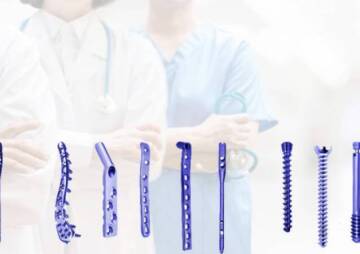
Titanium does not suit all body types and some may show reaction whereas some others may not. It is a common issue as all humans don’t have the same body type and the anatomies are different.
An orthopedic implant is a surgery, through which a device is placed into the human body. The purpose is to restore the function and strength of the body part, by replacing the damaged structure. It is noteworthy that implants are usually used as the last resort, in case the attempts for healing the damage fail. Humans have been using different kinds of implants for more than centuries now. Titanium has traditionally been seen as a biocompatible metal and if the titanium is pure then it is said that it is composed of 99% titanium and very low traces of nickel present in it.
A variety of titanium orthopedic implants are used for different kinds of procedures. Since any orthopedic implant procedure is complicated, it is important to have enough information about the problems, surgeries, and implants used to treat the issues.
What kind of metal is used in orthopedic surgery?
Previously, implants were made using gold, silver, lead and aluminum. One of the latest discoveries was the use of titanium. Nowadays, after many years of testing, it is proved that of all the metal implants in the human body, titanium implants are the most suitable types for a variety of reasons. The most important reasons are that it can last for a long time, reportedly 20 years. Another important feature is that it does not corrode in the human body and is easily accepted by the body as it is more resistant to dangerous reactions.
But this is not all. In fact, there is a long list of features for titanium. The most important factors are:
- It has low density and does cause annoyance for human beings.
- It is proved to be strong.
- It is highly resistant to oxidization.
- Titanium is non-magnetic and non-toxic.
- It has a light mass.
- It is less prone in generating allergies compared with other metals.
- It is less rigid and easier to use.
Two negative points of titanium implant are:
- It can result in allergic symptoms, though the researchers think that patients are not allergic to the titanium but are allergic to the impurities in titanium which include nickel, chromium as well as cadmium.
- Since titanium is good in metal categories, it is a costly metal and not many people may be able to afford it.
In order to find out whether a person is allergic to titanium or not, there is a test done before surgery. The name of the test is MELISA. This test is very accurate and takes a sample of your blood to check whether it is sensitive towards titanium or not.
What are the types of orthopedic implants?
There are different types of orthopedic surgical implants. Depending on the kind of injury, the area of the body which is injured and the type of required implant, a variety of implants can be used in one procedure. The three most common types of implants are the screws, plates, and prostheses.
There are two types of orthopedic screws, the ones which are flat and the ones which are Phillips head. Screws are ubiquitous devices. For repairing fractured bones or restoring stability in the areas which are weak, it is expected that the orthopedists would use screws. Normally, these screws are not removed later, they are going to stay there. In order to implant these screws, a screw hole is made in the patient’s bone.
The second type of surgical implants, as mentioned above, are the plates. Plates were first used more than 50 years ago in 1886 to fix bones which were fractured. Like screws, there are different types of plates as well which are used in the orthopedic implant processes.
- Buttress plates hold the fractures together at the end of long bones. They also hold the bone which is unstable.
- Neutralization plates are used for spanning the area of the fracture.
- Bridging plates provide length and alignment and stabilize the area.
- Tension plates secure the area which is affected until it heals.
- Compression plates repair the bones by using pressure.
The last type of surgical implants introduced in this article is the prostheses. There are a variety of prostheses used by orthopedists to replace joints and bones. Nowadays, many athletes are getting prostheses done in their knees and hips, and this allows them to regain full motion and alleviate the pain of a damaged joint in a short span of time. Proper knowledge about the variety of surgical implant products are used for this procedure that can help a better understanding of the procedures themselves,. Few examples are:
- For neck fractures Austin Moore prosthesis is used
- For replacement of elbow Baksi’s prosthesis
- For fixing inter-trochanteric fractures Ender’s nail is used
- For spine fixation Luque rod is used
- For elbow replacement souter’s prosthesis is used
The symptoms of titanium allergy can be as the following, but not all have and get the same symptoms. They are:
- Pain and inflammation which occur at the site of the surgery
- Fatigue
- Headaches can be the symptoms as well
- Generalized reactions of the skin which includes eczema and urticarial.
Can a person get an MRI in spite of having titanium implant?
It is one of the most suitable types of materials to be used as surgical implants. As such, it is safe and a person with a titanium implant can have an MRI without any fear or hesitation.
It should be taken into consideration that; titanium does not suit all body types and some may show reaction whereas some others may not. It is a common issue as all humans don’t have the same body type and the anatomies are different. Therefore, the bodies may show different reactions to the substances around them. There is nothing to worry about. Joint pains, fractures now can be alleviated and fixed with the help of titanium surgical implants. The implant will help regaining body strength. It is just important to keep in mind that the MELISA test should be taken before undergoing the procedure, to make sure no allergies will arise.

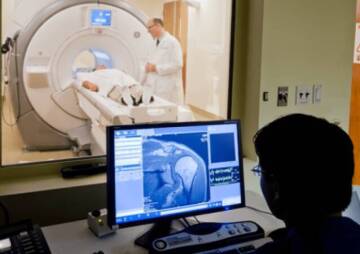
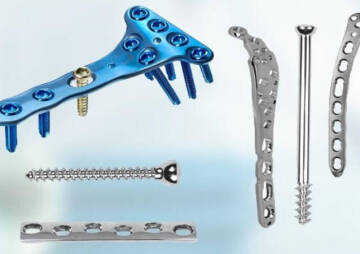
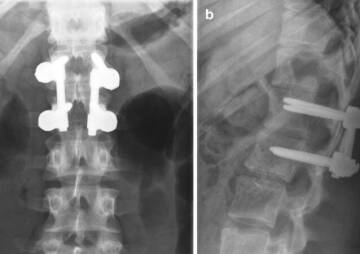
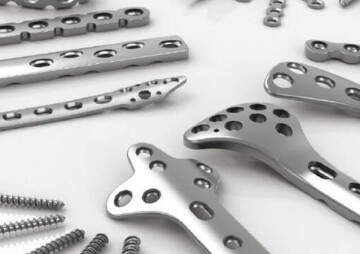
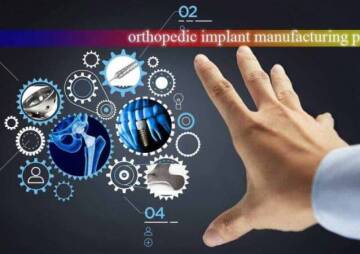

Currently I am going to have an implant procedure for replacement of a tooth, I have 3 screws removed from the same foot for they were coming out, different locations on the foot, I really don't know if I should spend the money on the tooth or just live with no tooth
I had Rt.Wrist ORIF for with Bone Grafting after malunion found during second opinion due to being informed severe Rt. Distal Radius & Ulnar Styloid fractures were healing & were not at all. Injury April 3, 2020 & wrist surgery on 7.2.2020. Both Orthopedic Surgeons were from same Orthopedic facility (Hand Surgeon Specialist treating fractures & then Subspecialty Orthopedic Hand Surgeon did surgery). There was NO MELISA testing prior to surgery. No protocol with DASH scores, post surgery follow ups minimal & even though I began PT 2 weeks post-op, I am worse today with daily chronic pain & complications. Volar plate incision site has never stopped hurting even with light touch or at rest. I inquired with Surgeon via his nurse & was told there is no such allergy to titanium. I also have deformity, severe scar tissue & severe pain from fingers all the way up to elbow begging for MRI to look at any damage to nerves, muscles, tissue, joints. I was told by Surgeon that is not good at all with inaccurate medical information due to scattered review of MRI because of titanium volar implant. This Orthopedic Surgeon informed me recently that I am disabled with condition of CRPS Severe. His only concern were healing process of two bones he repaired. I left the Orthopaedic facility last Friday seeing a different more reputable & larger medical facility. It's been over a year now since injury & 9 months post-surgery on my right dominant wrist. My Corporate Mngt career & an inspirational writer about ready to complete & submit my manuscript to several publishers for review are over. I knew nothing about this topic, yet I did inquire with Orthopedic Surgeon. I have numerous tests this week & I am being tested for possible allergy. I don't know what the outcome will be, but this was recommended by a new top notch Orthopedic Hand Surgeon. Thank you for this information.
My plates been in for nearly 21 years!!!
I’ve heard that the body has to have been previously espoused to the implant in titanium(or other materials) to give a positive.
If body has never been exposed to implants in that material then MELISA test gives a false negative because the body reaction had no time to develop and antibodies are not existing yet.
Is this correct?